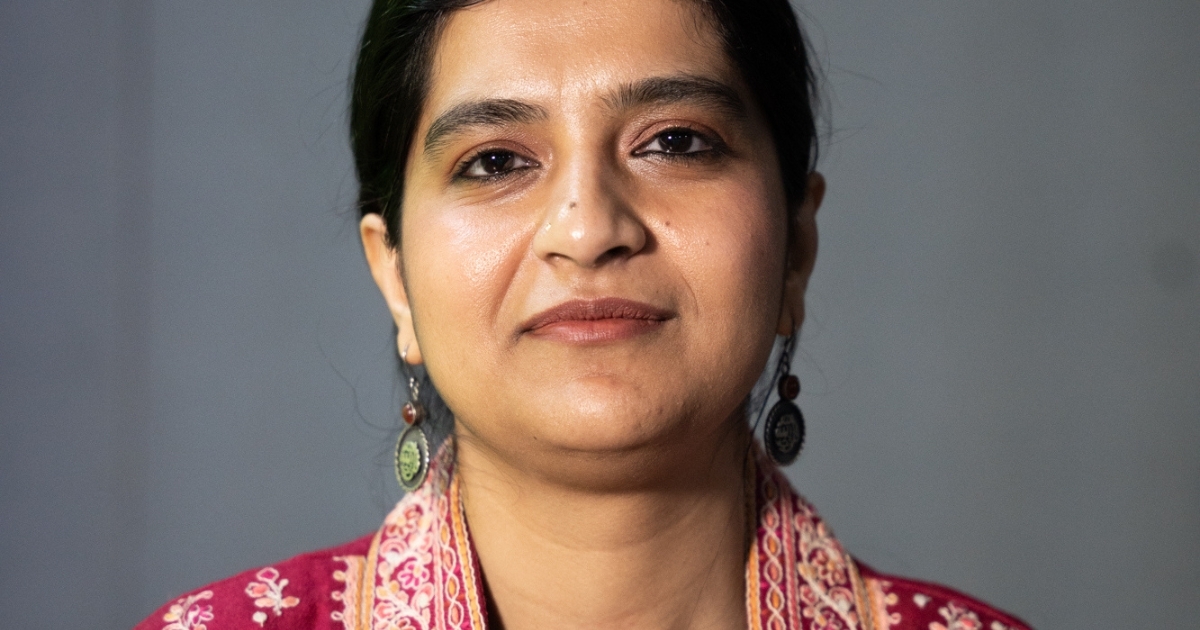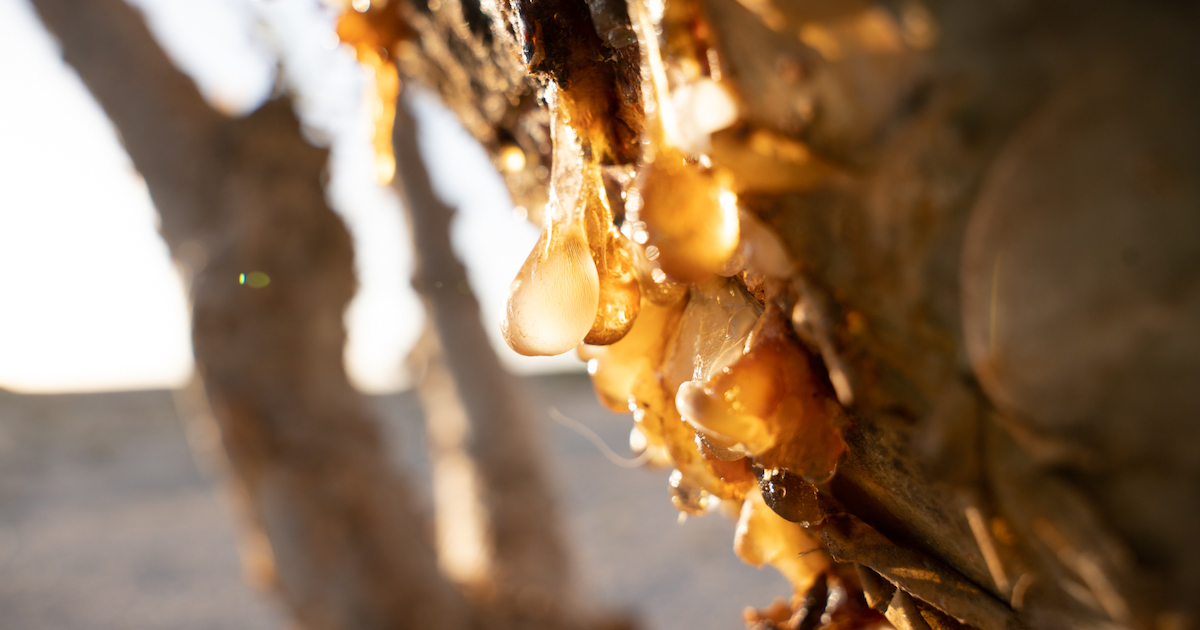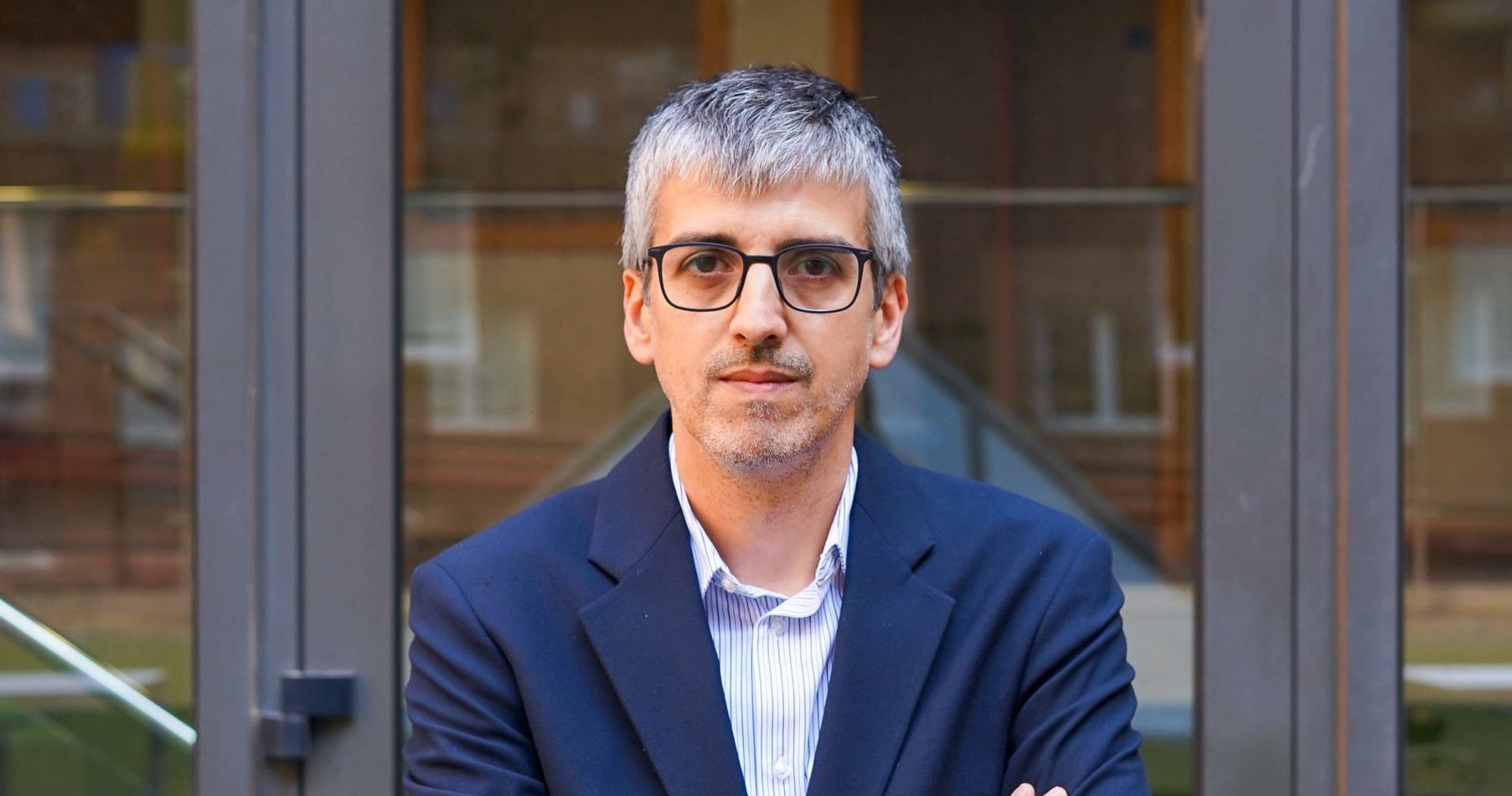Cette publication est également disponible en :
Français
Founded more than 20 years ago, Quintis is now the leading producer of ethical Indian and Australian sandalwood. It is a supplier to numerous brands in the fragrance industry, thanks to a quality essence with recognized therapeutic benefits. To mark the launch of Q-Lab, Vanessa Ligovich, chief marketing officer for Quintis Sandalwood, retraces the history of the company.
Sponsored partnership
What was the vision in creating Quintis?
Quintis was born of a desire to safeguard Indian sandalwood (Santalum album) in establishing the very first sustainable plantation of the species in 1999 in Australia. Its essential oil is one of the most valuable ancient oils in existence. With the illegal poaching and harvesting of Indian sandalwood in India pushing supply to the brink in the 1980s and landing Indian sandalwood on the International Union for Conservation of Nature’s vulnerable species list in 1998, Quintis saw an opportunity to save the species.
We have dedicated the past 20 years to producing and advocating for an ethical supply of Indian sandalwood to combat this “black market” activity. Quintis now owns and manages one of the largest Indian sandalwood estates in the world, and we are the principal suppliers of it.
Our essences are completely traceable back to their source. Each tree is assigned a unique identifier, which we trace from the production process through to the end product.
What are the different initiatives that Quintis has set up to develop an ethical approach to sandalwood production?
We consider that an ethical production must respond to current needs without compromising those of future generations. To achieve this, we have adopted key recommendations of the United Nations Sustainable Development Goals and have developed a long-term strategy that is centered on three main pillars: sustainable production, our carbon footprint and human rights.
Sustainable production is a vast subject that we address through a range of initiatives: the establishment of a water recycling system that has been in operation since 2011; the refusal to employ growth hormones and carry out testing on animals; the reduction of our use of pesticides through the introduction of beneficial insects on our crops; and the use of recycled materials for our packaging.
One evolution that we are particularly proud of is that we have patented a groundbreaking Continuous Steam Distillation (CSD) process. Through CSD, we can produce greater volumes of oil at higher speeds, with four times more oil produced with the same volume of steam (now 1,000 kg of steam produces 4 kg of oil), saving up to 75% more water and energy. The oil is both more sustainable and superior in quality, with the shorter distillation time reducing the likelihood of off-notes developing.
Regarding our carbon footprint, we are currently conducting a trial looking to transform biomass into biocarbon, which allows us to avoid releasing CO2 into the atmosphere while also improving the soil structure and our productivity.
Yet ethics also has a human dimension. In this area, we are certified by SEDEX, which fights against modern slavery, and accredited by REACH, which aims to protect human health and the environment from the risks that can be posed by chemicals. We support vulnerable communities though groups like Kununurra Community Kitchen, Men’s Shed and other organizations seeking to ensure their basic needs. We advocate for gender parity and are a member of the Perth International Women’s Day Committee, which supports UN Women Australia. Lastly, we are signatories to the IFRA-IOFI Sustainability Charter.
What are the different properties of sandalwood essence?
Indian sandalwood oil is considered the most elite of the species and constitutes a choice ingredient in the perfumer’s palette. This species of sandalwood contains the highest levels of beta-santalol, the compound believed to be the powerhouse behind its soft woody and creamy notes; in addition, its fixative properties ensure the longevity of perfume on the skin.
Indian sandalwood oil can also calm the mind and reduce anxiety. This is particularly interesting in the fragrance industry, where “functional fragrances” with therapeutic benefits are starting to become popular among consumers.
These benefits extend to skin. Indian sandalwood is a proven antioxidant and can protect the skin from the damage caused by blue light and pollution. It is becoming the newest “it” ingredient within the active cosmetics space.
What are the commitments that Quintis has made to guarantee the quality of its essential oils?
We have considerable expertise in the product, based on more than 20 years of experience in studying, cultivating and distilling it. Our passionate team of foresters, agronomists and chemists nurtures our trees from harvest and into production, ensuring the sustainability and availability of this versatile ingredient for generations to come.
We also meet IFRA Standards [recommendations on the use of odorant molecules issued by the International Fragrance Association, ensuring a utilization that does not pose harm to consumers or the environment] and are globally certified by over 20 industry bodies, including COSMOS. Our Indian sandalwood oil is COSMOS approved and our Australian sandalwood oil is COSMOS certified. We are the only ones to offer organic Australian sandalwood on the market.
Finally, analytical testing confirms that each oil batch exceeds international quality standards (ISO 3518) and has a superior olfactory profile; our wood and powder products also exceed international quality standards (ISO 9001). The fact that we can customize the olfactory profile of our oils to suit specifications is of particular interest to fragrance brands.
What are the major developments that you would like to see happen for sandalwood in the future?
Unfortunately, the poaching of sandalwood still happens today, with an estimated 90% of Indian sandalwood sourced from illegally harvested means in India. We have devoted the past 20 years to producing and advocating for an ethical supply of Indian sandalwood to combat this, but more work needs to be done: Everyone has their part to play. We encourage perfumers to ensure that they are buying their sandalwood oil from a reputable and ethical source.
Beyond this, we see a huge opportunity for sandalwood as a well-being ingredient in the future. Sandalwood oil has many therapeutic benefits, but we believe that this ancient ingredient has more benefits and hidden secrets that we can discover through further research.
Why did you create Q-Lab?
With the creation of this center of excellence, we wish to promote interactions and creativity around sandalwood and its virtues in the fragrance, cosmetics, aromatherapy and food industries. We will offer an array of initiatives bringing together brands, formulators and educators: online courses, guest talks, industry competitions, and partnership and research opportunities with a wide range of experts.
What was your objective in organizing the Q-Lab “Sandalwood Reimagined” competition?
The past two years have been a challenging time for everyone in the industry, so we organized the competition to create a collegial experience for perfumers, giving them an opportunity to be creative with Indian sandalwood oil and to showcase the beauty of this ingredient.
We also wanted to celebrate the return of this ancient ingredient, with a vast supply of Indian sandalwood now available through sustainable cultivation in Australia, which has helped to see its resurgence in fragrance formulations in recent years.
About the competition
Those wishing to participate have until November 25, 2021 to register on Quintis’s website and must ensure that their entries are received by March 31, 2022. Submissions will then be voted on by an independent panel selected by the American Society of Perfumers and made up of master perfumers who have collaborated with the big names in the business, including Givaudan, Firmenich, Mane, Estée Lauder and Ralph Lauren. The compositions will be assessed blindly, on blotters and on skin. On May 15, 2022, the 10 finalists will be selected and announced at SIMPPAR on June 1, 2022, in Paris. The two grand prizes will be awarded at the World Perfumery Congress in Miami in 2022. The Global Winner will receive AU$10,000 (approximately €6,400), and the winner of the Emerging Talent award, for a perfumery student or a junior perfumer, will receive AU$2,000 (approximately €1,280).
To learn more or apply visit : https://q-lab.quintis.com.au/competition








Comments